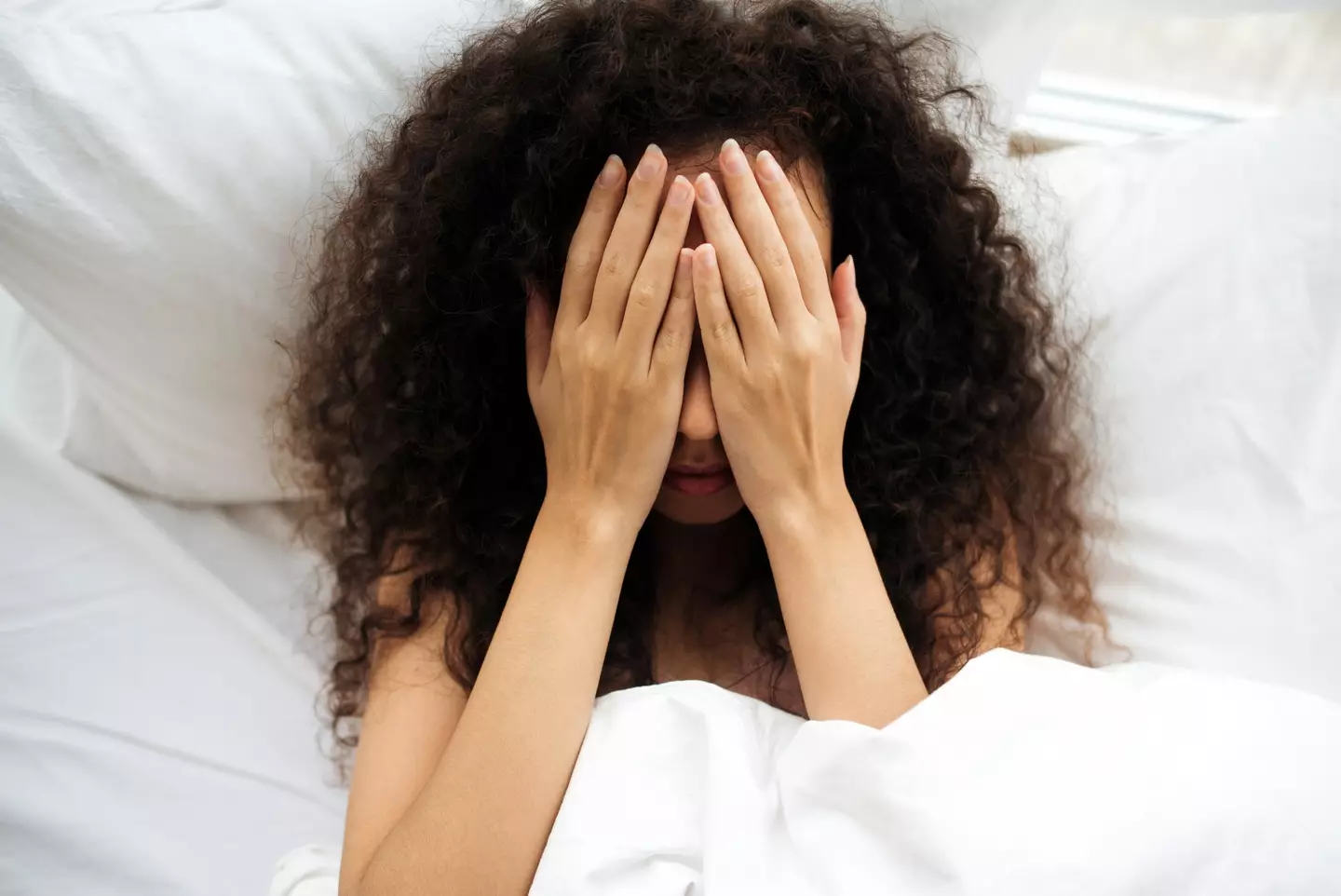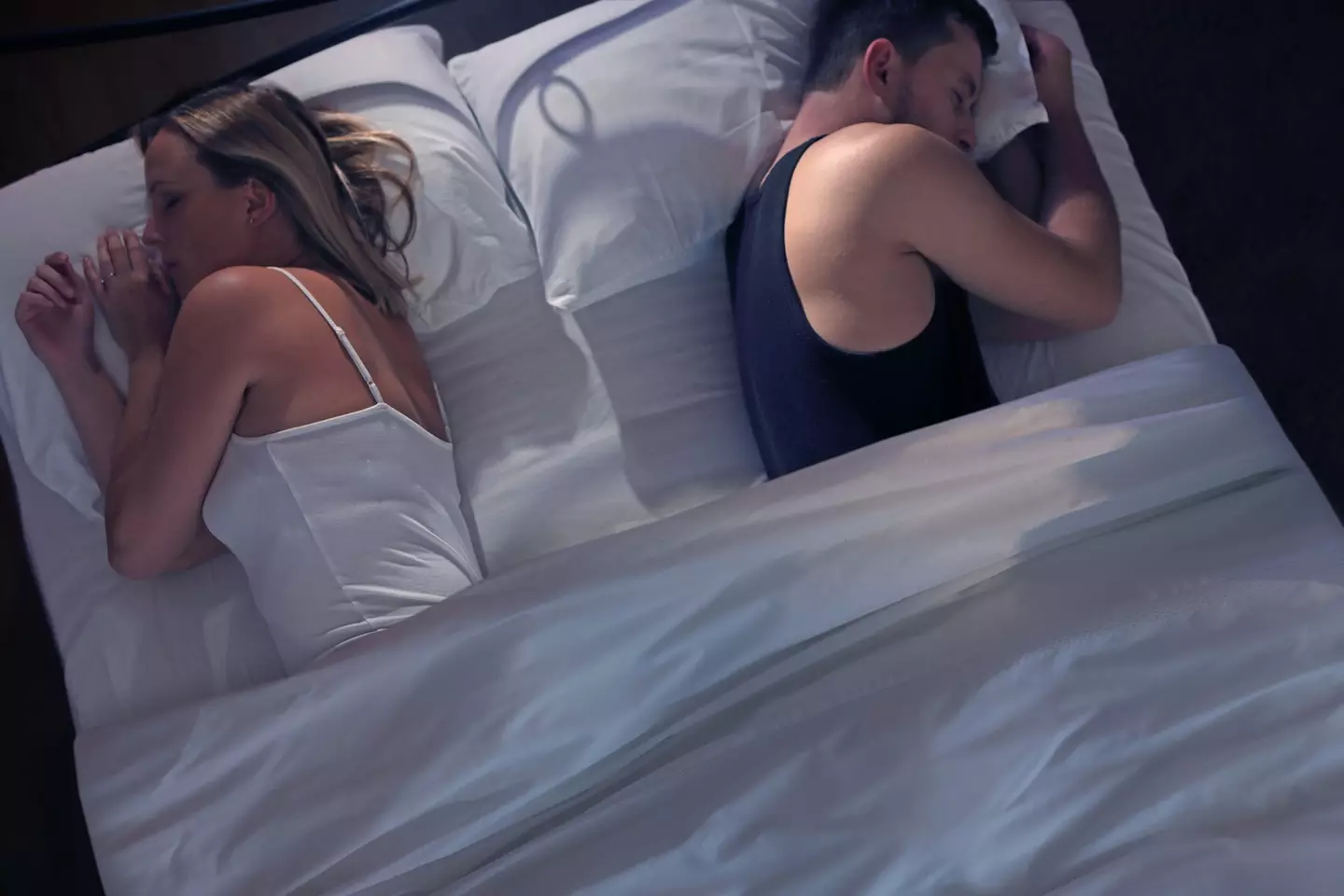.png)
A sex expert has opened up about the six common bedroom myths people always ask about.
Relationship columnist Tracey Cox says she has been left wondering why 'we weren't all taught in school' about sex misinformation.
For starters, she reckons that 'most therapists believe we make way too much fuss about orgasms'.
Cox said that being concerned about finishing creates 'pointless anxiety', which is why 'so many couples worry unnecessarily'.
Advert

Here are her six sex myths:
Desire fluctuates
In her column for the Daily Mail, she reminds us that we are human and 'not robots'.
"Most people accept that desire is highest at the start of a relationship and falls the longer we're with someone. But forget all the other factors that influence it," Cox said.
Advert
"Obvious libido-dampeners are stress, health issues, pregnancy, parenting and money worries. Basically, anything that has a negative impact on our lives: most people need to be happy to be in the mood for sex – and happy with their partner."
You might want less sex as you age

As you get older, you naturally aren't that up for it like you were in your younger days, Cox says.
"So long as you talk to each other about where you're at – 'I'm sorry I'm not feeling like sex right now, but that new boss is really getting to me' – keep affection going and maybe offer up some low-effort sex options (oral sex, perhaps, or you watch while they masturbate?), most relationships can sustain the natural fluctuations that happen to desire over time," she said.
Don't worry about how your vagina smells
"Women worry about how they smell from a very young age," Cox explained.
Advert
"We don't need 'enhancing' or 'freshening'. Vaginas aren't supposed to smell like strawberries and cream. Not only are these products unnecessary, they mess with the delicate balance of flora and cause irritation, infections and even pelvic inflammatory disease."
Performance anxiety is not uncommon

If you're worried about performing at your best, it's totally normal, the sexpert says.
"One minute you're fine, the next you're totally in your head during sex: hyper-aware of your body and how it's looking and functioning," she said.
Advert
"Instead of losing yourself in the moment, you're anxiously scanning your partner's face to check they're enjoying themselves.
"Unable to orgasm because you're worried your 'orgasm face' is a turn-off."
Good sex takes work
Cox warned: "Disappointing but necessary to know: you can't put your sex life on autopilot and expect good sex to be a given.
"You need good communication, a willingness to try new things and be open to compromise to find a satisfying balance for both."
Men aren't always in the mood

Advert
The relationship specialist insists that men and women are more similar than you think and that 'society assumes men want sex all the time and lots of it'.
"When they don't, they're made to feel inadequate and unmasculine," she added.
"What happens next is a downward spiral. A lot of men do what women also do when stressed: self-medicate with alcohol. Excessive drinking affects the production of testosterone, the primary hormone responsible for our drive for sex.
"Not surprisingly, the kick-on effect of all this is often amplified depression. So, he pops to the doctor who hands out anti-depressants and maybe some blood pressure pills, effectively wiping out any cravings that might have been hopefully hanging around."
Topics: Sex and Relationships